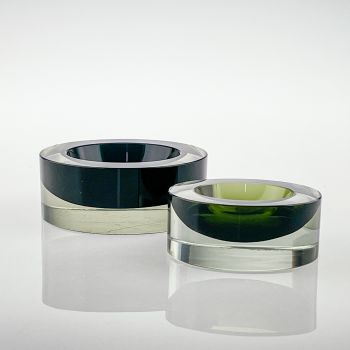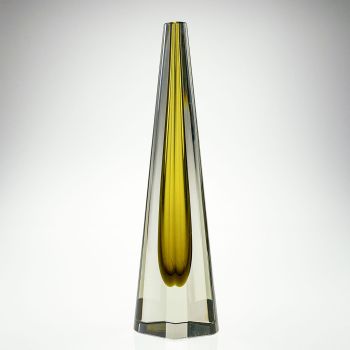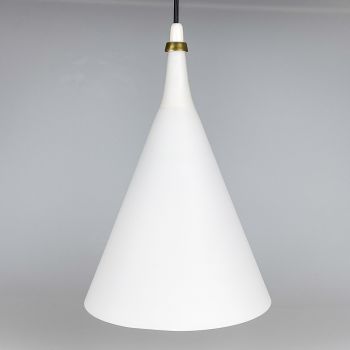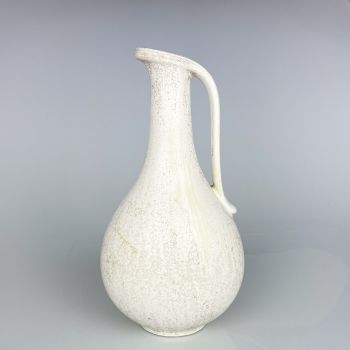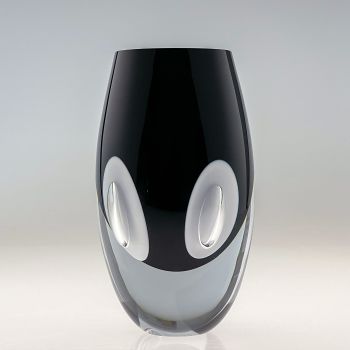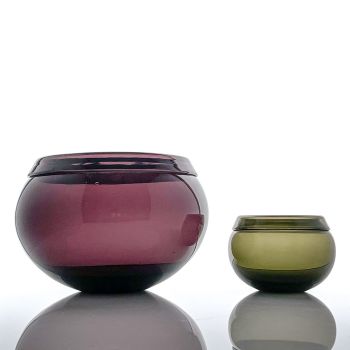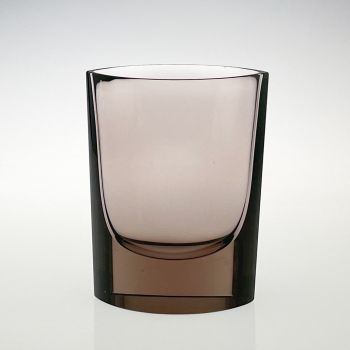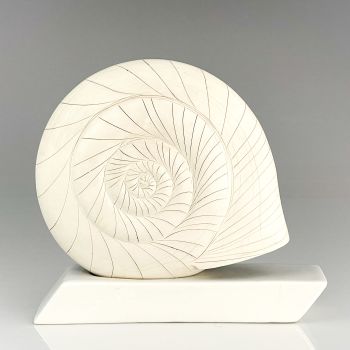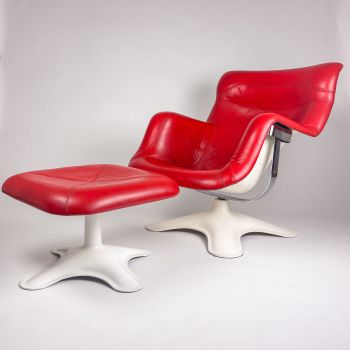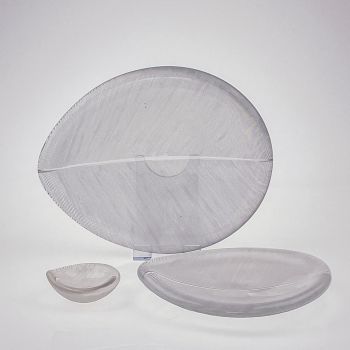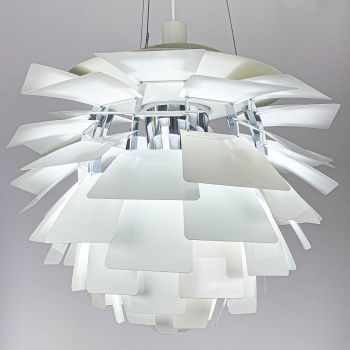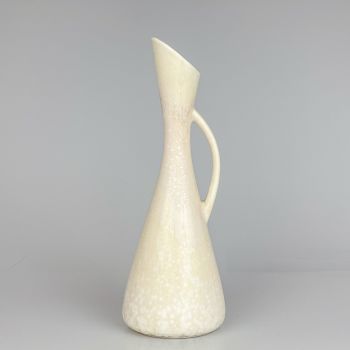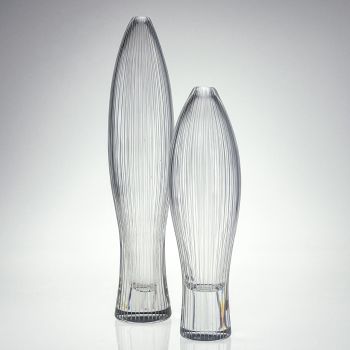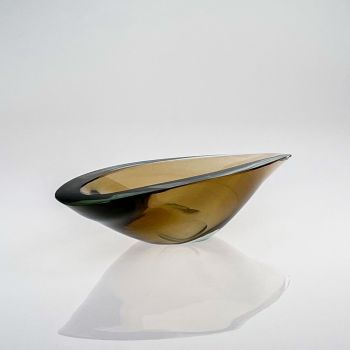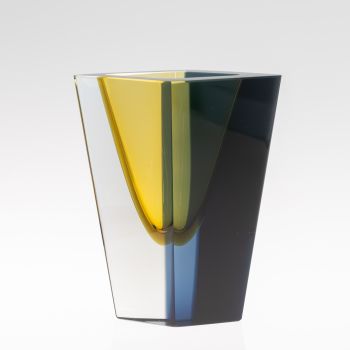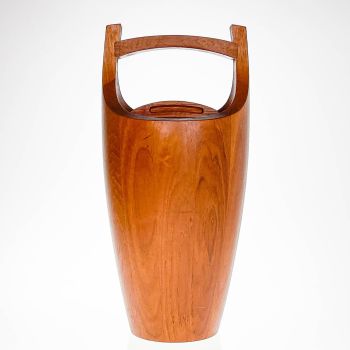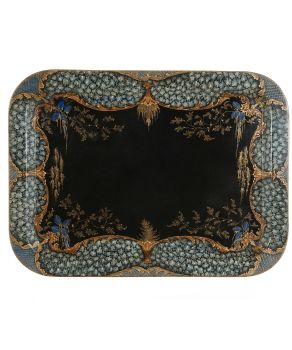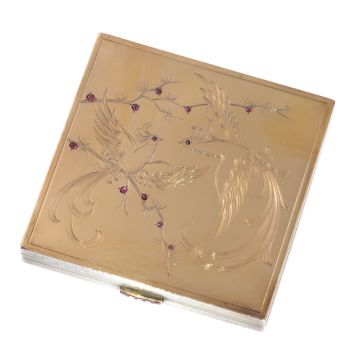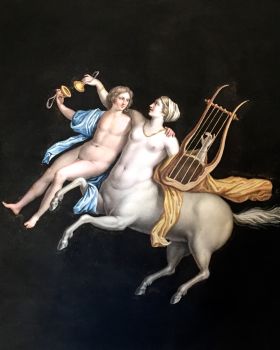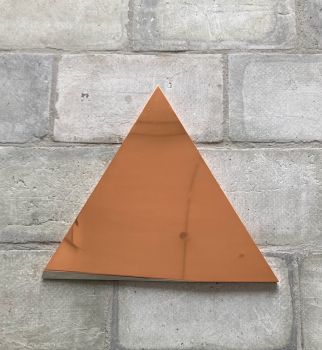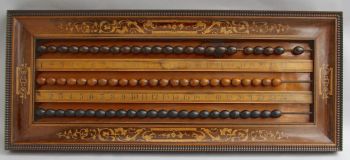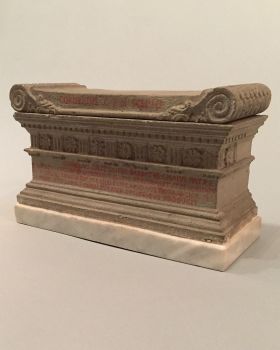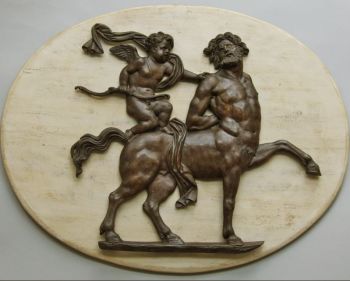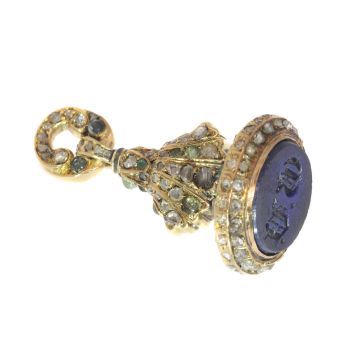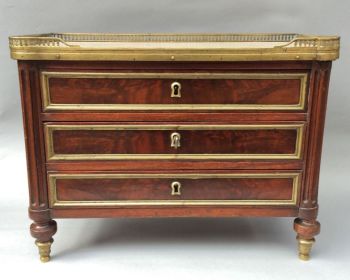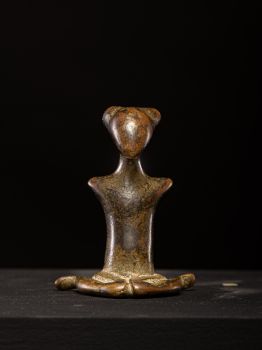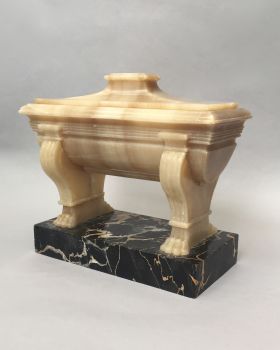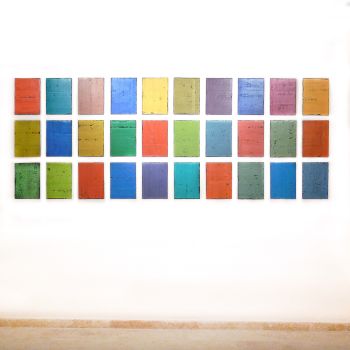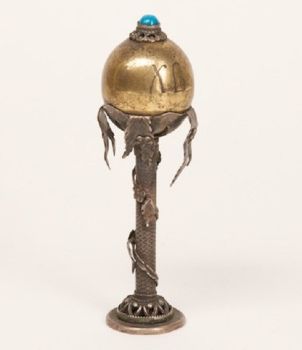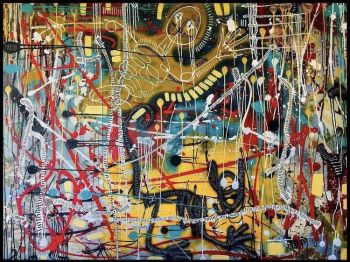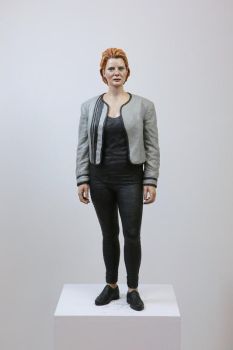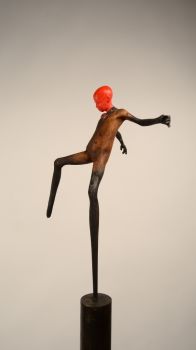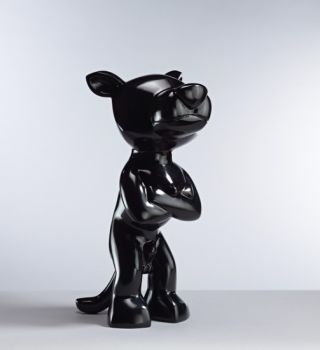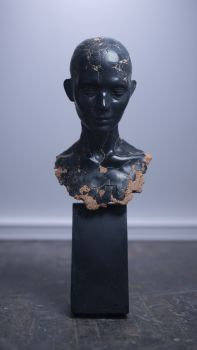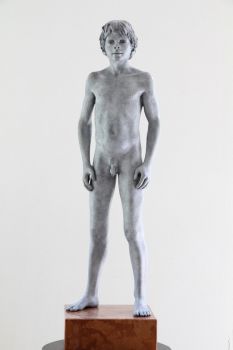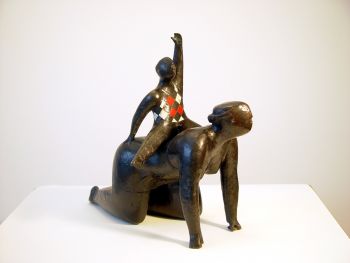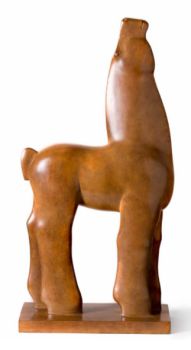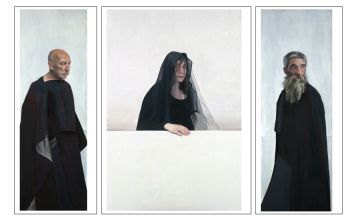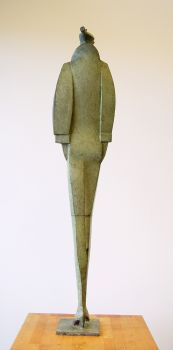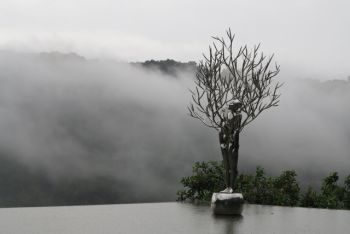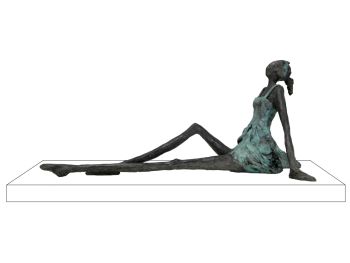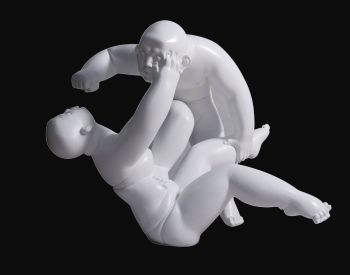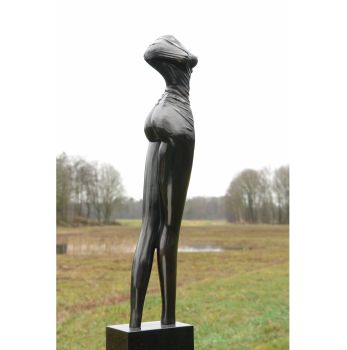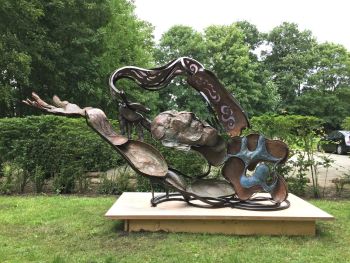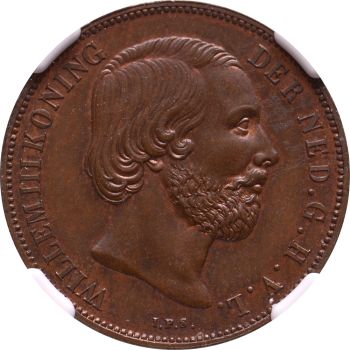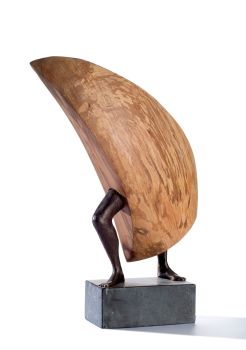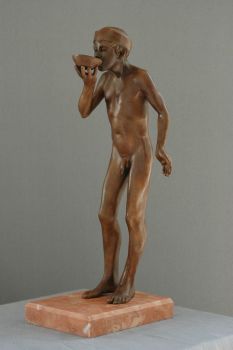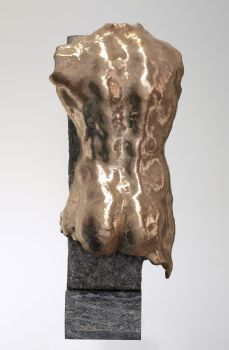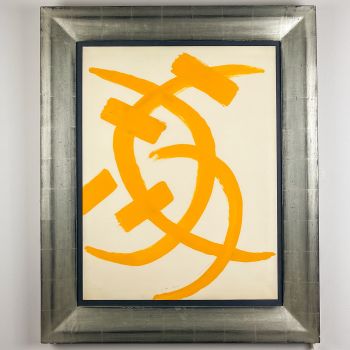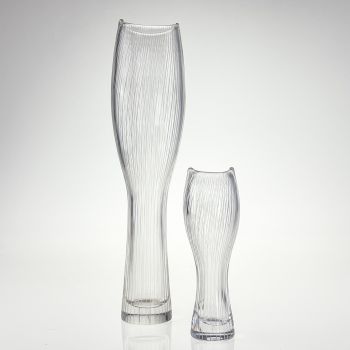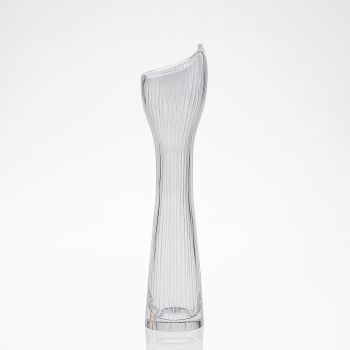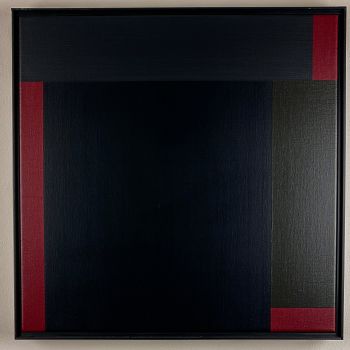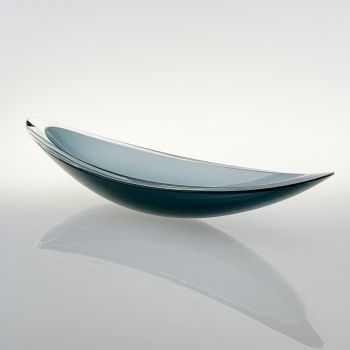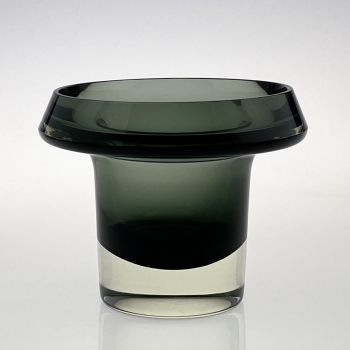A multicoloured enameled copper bowl – 1960’s or 1970’s 1960 - 1979
Saara Hopea
MetaalRood koperEmail
4 cm, ø 14 cm
ConditionVery good
€ 575
Van Kerkhoff Art
- Over kunstwerkA multicoloured enameled copper bowl, with spot textured areas. Handmade by Saara Hopea in her own workshop in the 1960’s or 1970’s. The plate is signed on the reverse by the artist in diamondpen: Saara.
Saara Hopea started making these copper enameled plates in 1960 when she lived in New York City. The enameling on copper she learned from her husband Oppi Untracht who taught enameling at the Brooklyn Museum Art school. In a very short time she mastered this craft and in the early 1960’s several of her plates were bought by the Museum of Modern Art. The copper plates Saara Hopea used were hand lathe spun by Abram Bender in New York.
Saara’s enamel work was interupted between 1963 and 1967 when she lived in India and Nepal. When she moved back to Finland she established a new workshop in Porvoo. She kept making these enameled plates by hand until 1980.
About Saara Hopea
Saara Elisabet Hopea (Porvoo 1925 – Porvoo 1984), a prominent Finnish designer renowned for her innovative creations in art-glass, furniture, and jewelry, left an indelible mark on the world of design during her lifetime. Born in 1925 in the scenic town of Porvoo, situated in the southern region of Finland, Hopea’s artistic prowess and unwavering dedication to her craft propelled her to international recognition.
The daughter of Ossian Hopea and Lempi Westerlund, who owned a reputable goldsmithing company, Hopea was exposed to the world of design from an early age. After completing her secondary education, she honed her skills at the Interior Design Department of the Central School of Art and Design, now known as the esteemed Aalto University of Art and Design.
In 1946, Hopea proudly graduated, armed with a wealth of knowledge and a burning passion for design. She embarked on her professional journey as an illustrator before joining the lighting factory of Taito Oy, a renowned establishment under the guidance of celebrated designer Paavo Tynell.
However, it was in the early 1950s that Saara Hopea found her true calling when she delved into the realm of glass design. With an innate talent and an insatiable curiosity, she joined the Nuutajärvi glass factory, where she had the privilege of working alongside the esteemed artistic director, Kaj Franck.
In 1959, tragedy struck as Hopea’s father passed away, and she courageously took the helm of the family business, Ossian Hopea Oy. As the artistic director from 1959 to 1960 and later from 1967, she left an indelible mark on the company’s direction and was responsible for numerous iconic jewelry designs.
Her creative journey took an unexpected turn in 1960 when she married Oppi Untracht, an accomplished American goldsmith, photographer, and writer. Together, they embarked on an adventurous life that led them to reside in New York City, Nepal, and India, before eventually settling in Porvoo in 1967.
Hopea’s exceptional designs earned her widespread acclaim and accolades. Her glass creations were honored with silver medals at the esteemed Milan Triennials in both 1954 and 1957, showcasing her mastery of the craft on an international stage. She also received notable recognition closer to home, including the prestigious Porvoo City Culture Prize in 1981 and the State Arts and Crafts Prize in 1982.
Today, Saara Hopea’s impact resonates globally, with her works showcased in renowned institutions. The British Museum in London boasts an impressive collection of 28 of her pieces, while the Museum of Modern Art (MoMA) in New York proudly displays 11 of her distinctive creations.
Although she left this world in 1984, Hopea’s artistic legacy continues to inspire and captivate design enthusiasts. Her retrospective exhibition at the Museum of Arts and Crafts in Helsinki in 1987 served as a testament to her enduring influence, ensuring her innovative designs remain cherished and celebrated for generations to come.
Marked
Marked in diamondpen underneath the base: Saara
Execution
Made in her own workshop: 1960-1963; 1967-1979
Condition
This plate is in very good vintage condition. No chips, no dents.
Literature
Oppi Untracht – Saara Hopea-Untracht: her life and work. P. 202-213
Dimensions
Height 4,7 cm
Diameter 14,7 cm
Weight 265 grams - Over kunstenaar
Saara Hopea had een vruchtbare carrière op verschillende ontwerpgebieden en drukte een belangrijke stempel op het Finse artistieke landschap van de jaren vijftig. Haar reis begon op het gebied van meubeldesign, waar ze haar vaardigheden van 1946 tot 1948 aanscherpte. Op zoek naar nieuwe kansen bundelde ze haar krachten met het bedrijf van de beroemde metaalsmid Paavo Tynell, waar ze tot 1952 werkte.
Gedurende deze tijd droeg ze bij aan de Nuutajärvi-glasfabriek, waar haar creaties een stralende belichaming werden van de minimalistische esthetiek die de Finse stijl in de jaren vijftig definieerde, beïnvloed door de principes van de Bauhaus-ontwerpfilosofie. Met name na het overlijden van haar vader in 1948 nam ze de taak op zich om zilverwerk te ontwerpen voor zijn winkel in Porvoo.
Een keerpunt in Hopea's leven deed zich voor toen ze trouwde en met haar man naar New York verhuisde. Hier sloeg ze een nieuwe artistieke weg in en verkende ze het domein van het emailwerk. Door haar experimenten met het overbakken van transparant email op koper, behaalde ze opmerkelijke resultaten die haar stukken een spontane en schilderkunstige uitstraling gaven, gekenmerkt door levendige kleuren en opmerkelijke diepte. Haar exquise emaille creaties vonden via exclusieve winkels hun weg naar veeleisende klanten.
De honger naar kennis en artistieke inspiratie van het paar leidde tot een opmerkelijke reis van vier jaar door Nepal en India. Gedurende deze tijd verdiepten ze zich in de studie, fotografie en verzameling van lokaal metaalwerk en sieraden. In 1997 publiceerde haar man, sterk beïnvloed door hun ervaringen, 'Traditional Jewelry of India', een bewijs van hun verkenning en waardering van het rijke artistieke erfgoed van de regio. In 1967 keerden ze terug naar Porvoo, waar Hopea's artistieke inspanningen een breed scala aan disciplines omvatten, waaronder zilversmeden, textielontwerp en emailleren.
De impact van Saara Hopea's talent en kunstenaarschap reikt verder dan de grenzen van Finland. Het British Museum heeft een collectie van 28 van haar werken, terwijl het Museum of Modern Art 11 kostbare voorwerpen bezit, een bewijs van haar blijvende nalatenschap. In 1988 publiceerde haar man een uitgebreid verslag van haar leven en werk met de titel "Saara Hopea-Untracht: Life and Work", waarin de opmerkelijke artistieke reis van deze rustige Scandinavische visionair werd belicht.
Bent u geïnteresseerd om dit kunstwerk te kopen?
Artwork details
Related artworks
- 1 - 3 / 3
- 1 - 4 / 24
Onbekende Kunstenaar
Twee centauren, Frans of Italiaanslate 18th
Prijs op aanvraagRobert Schreuder Antiquair
Onbekende Kunstenaar
A white jade ‘Lotus Seedpod and Bug’ carving, Qing dynasty, 18th century18th century
Prijs op aanvraagMenken Works of Art
Onbekende Kunstenaar
Chinese gilt bronze censer, Xuande mark, 18th century, Qing dynasty18th century
Prijs op aanvraagMenken Works of Art
Onbekende Kunstenaar
Silver Russian Presentation Easter Egg1880 - 1899
Prijs op aanvraagH.W.C. Dullaert Art & Antiques Dealer
1 - 4 / 24- 1 - 4 / 24
- 1 - 4 / 12










